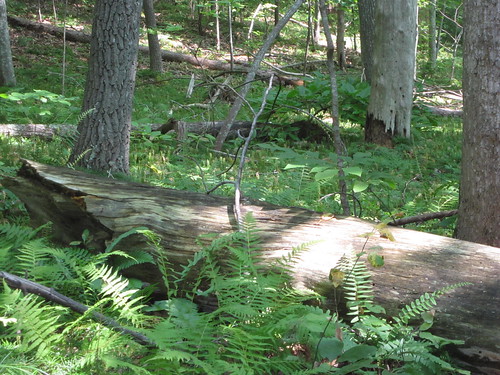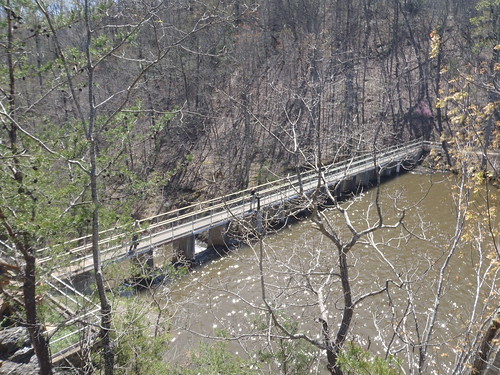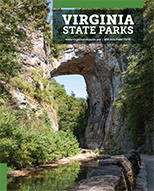Due to the expected impact of the winter storm, all Virginia State Park overnight facilities will be closed from Friday, Jan. 23 through Tuesday, Jan. 27. This decision is based on the forecast for unsafe conditions and potential power outages. For updates click here.
Read Our Blogs
Land Grants and Large Extended Families
Around the middle of the 18th Century, John Peak Sr. and Robert Peak immigrated from Ireland and settled in Hanover County, Virginia. These brothers, along with the Gannaway and Anderson families, received land grants in what is now the counties of Appomattox, Buckingham, Cumberland, and Prince Edward. By 1748, the three families had established a community of first settlers. The Peak family was granted the land that includes present day Holliday Lake State Park and the Appomattox-Buckingham State Forest.

To obtain a land grant, the grantee had to gain approval from the Council or Governor, survey the land, and then apply for a patent. The grantee would take the survey to the Governor in Williamsburg who issued the letter patent, thus granting ownership. The grantee had to settle the land and live there for at least three years. Occupation of the land usually occurred before the final patent was issued. The process is similar to homesteading.
The Peak family's land grant included considerable land where Holliday Creek enters the Appomattox River. This is just downstream from where the dam was formed to create Holliday Lake. Between the three families, they owned several thousand acres in Central Virginia. The Peak brothers married Gannaway and Anderson relatives, so they were all one big family. This large clan included thirteen Anderson children, Fourteen Gannaway children, Robert Peak's three (possibly more) and John Peak Sr.'s eleven children all living close together on the frontier.
These families worked hard to meet their own needs and were, out of necessity, self-sufficient. They would have raised their own animals such as cattle, sheep, poultry, pigs and horses, They would have grown corn, hay, vegetables, fruits, and flax. Flax was valuable for oil as well as clothing. Their main cash crop was tobacco, which they shipped down the Appomattox River to warehouses in Petersburg.

Tobacco barn
When the four patriarchs died, their children and grandchildren were left to manage the land they had acquired. By 1776, the wilderness they had tamed into a thriving settlement was left to be sold off in part and parcel. Some of the children remained for a time and raised families. The nation had changed forever with the signing of the Declaration of Independence. Many Andersons, Gannaways and Peaks fought in the Revolutionary War. Clearly that frontier spirit was passed on to the next generation.
You can still see evidence of these pioneers today. Depending on how you get here, you might travel on Peaks Road or pass by Peaks Church on the way to the park. Many of the roads were merely foot paths until these families began traveling them regularly to socialize with each other or travel to more populated areas for business.

Holliday Lake Dam
If you visit Holliday Lake State Park today, the land will look a lot different, but the spirit is still here. Take a hike to the dam and look out over Holliday Creek. There you can imagine the lives of those hardy, hard-working frontiersmen. Take a moment and think about what these families went through to settle this land. I think we owe them that much.
Read more about Holliday Lake State Park's history here.
Holliday Lake State Park is located off Route 24 between Appomattox and U.S. 60 and from Routes 626, 640 and 692. For more information click here, or call the park office at 434-248-6308 or by email.
Drive Time: Northern Virginia, three and a half hours; Richmond, two hours; Tidewater/Norfolk/Virginia Beach, four hours; Roanoke, two hours. Click here for a map.
If you have read the article and have a question, please email nancy.heltman@dcr.virginia.gov.
Search for blogs
By Park
Categories
Cabins
Camping
Fishing
History and Culture
Other
Programs and Events
Trails
Volunteers
Water Fun
Archive
2026
2025
2024
2023
2022
2021
2020
2019
2018
2017
2016
2015
2014
2012













